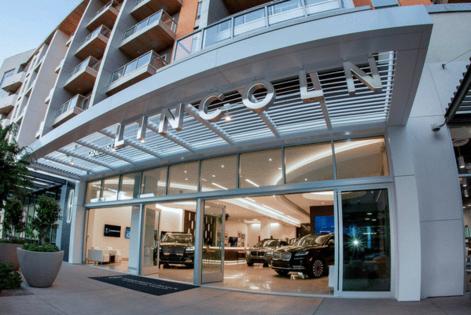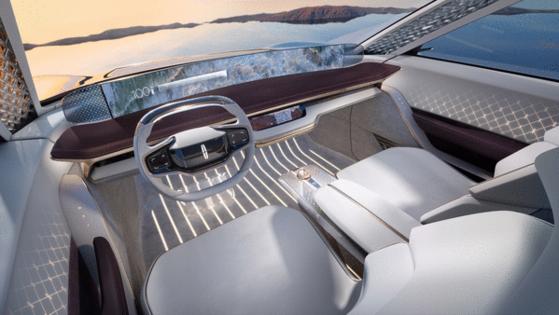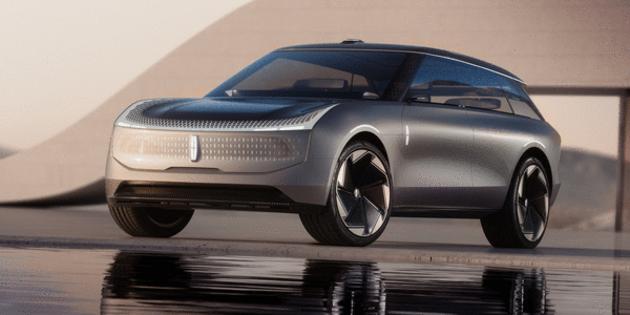Lincoln's U-turn: Ford luxury brand focuses on digital tech over electrification
Published in Automotive News
PALM SPRINGS, California — While other small, premium brands like Jaguar, Alfa Romeo and Cadillac have rushed towards high-tech, all-electric drivetrains sniffing a historic opportunity to re-define themselves, Lincoln is taking a different road.
Ford’s luxury brand is introducing cutting-edge digital tech — but without the battery skateboard chassis underneath.
Debuting inside the midsize Nautilus SUV, the Lincoln Digital Experience’s 48-inch, pillar-to-pillar screen is the most revolutionary cabin since Tesla — leaning into the brand’s “quiet luxury” theme along with self-driving Blue Cruise, boutique dealership experiences and digitally-scented tech. Under the hood are traditional, sippy, turbo-4 gas engines.
“(We’re) listening to what customers really need. Navigator customers tend to tow more, so (battery power) doesn’t make as much sense,” said Lincoln President Dianne Craig in an interview, referring to the brand’s flagship, three-row, twin-turbo V6-powered SUV. “That’s how we think about this transition — whether it's hybrids, plug-in hybrids, full hybrids, ultimately to EVs down the road — it’s going to e different depending on segmentation. And segmentation is different based on different customers we serve.”
That’s a sharp U-turn from just two years ago. In April 2022, Lincoln was sprinting to an electric future under then-President Joy Falotico with the introduction of the Lincoln Star Concept — revealing a new, dynamic, grille-less fascia complete with light show like crosstown rival Cadillac and its Lyriq EV.
The Star was the first of three EVs to be delivered by next year — and a fourth by 2026 — as the brand predicted half of its global volume would be electric by mid-decade. At the EV’s Los Angeles premiere, brand spokesperson and actor Matthew McConaughey gushed that the Star “has a wonderful identity. It's not a new page; it's a new chapter."
At the Nautilus media test drive here, there was not an electric vehicle in sight.
“Back in 2021 and 2022, there was overall hope from automakers that was ahead of what was realistic,” said analyst Stephanie Brinley, S&P Global associate director of auto intelligence. “You have to sell to pragmatic buyers after the first adopters and that’s been hard to do. Electric vehicles are not taking off like the industry expected.”
The Blue Oval’s Ford brand took the lead on EVs, unveiling the Mustang Mach-E SUV and Lightning pickup to rave media reviews and a flood of customer pre-orders. Fast forward to January and the Mach-E was the nation's eighth-slowest selling vehicle with 302 days of inventory according to CarEdge. Lightning, meanwhile, reduced production from three shifts to one due to reduced demand.
Still, the niche sales brought Ford needed breathing room from government regulations that threaten other automakers with billions in fines in the decade ahead. Toyota, for example, says it will pay the fines rather than build vehicles customers don’t want.
...continued
©2024 www.detroitnews.com. Visit at detroitnews.com. Distributed by Tribune Content Agency, LLC.












Comments